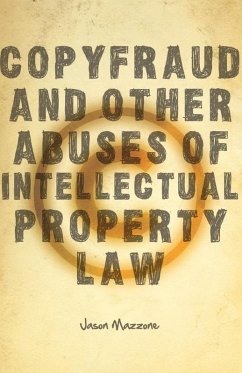Intellectual property law in the United States does not work well and it needs to be reformed-but not for the reasons given by most critics. The issue is not that intellectual property rights are too easily obtained, too broad in scope, and too long in duration. Rather, the primary problem is overreaching by publishers, producers, artists, and others who abuse intellectual property law by claiming stronger rights than the law actually gives them. From copyfraud-like phony copyright notices attached to the U.S. Constitution-to lawsuits designed to prevent people from poking fun at Barbie, from controversies over digital sampling in hip-hop to Major League Baseball's ubiquitous restriction on sharing any "accounts and descriptions of this game," overreaching claims of intellectual property rights are everywhere.
Overreaching interferes with legitimate uses and reproduction of a wide variety of works, imposes enormous social and economic costs, and ultimately undermines creative endeavors. As this book reveals, the solution is not to change the scope or content of intellectual property rights, but to create mechanisms to prevent people asserting rights beyond those they legitimately possess.
While there are many other books on intellectual property, this is the first to examine overreaching as a distinct problem and to show how to solve it. Jason Mazzone makes a series of timely proposals by which government, organizations, and ordinary people can stand up to creators and content providers when they seek to grab more than the law gives them.
Overreaching interferes with legitimate uses and reproduction of a wide variety of works, imposes enormous social and economic costs, and ultimately undermines creative endeavors. As this book reveals, the solution is not to change the scope or content of intellectual property rights, but to create mechanisms to prevent people asserting rights beyond those they legitimately possess.
While there are many other books on intellectual property, this is the first to examine overreaching as a distinct problem and to show how to solve it. Jason Mazzone makes a series of timely proposals by which government, organizations, and ordinary people can stand up to creators and content providers when they seek to grab more than the law gives them.
Dieser Download kann aus rechtlichen Gründen nur mit Rechnungsadresse in A, D ausgeliefert werden.









